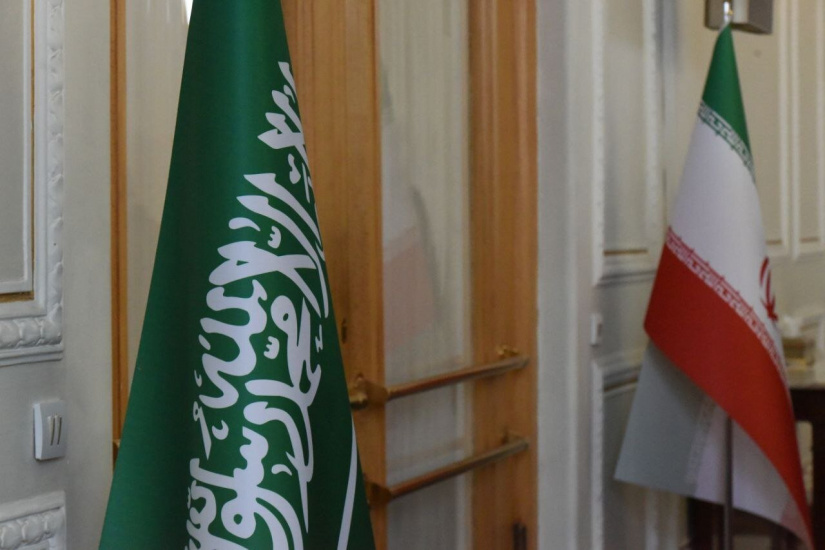Saudi Arabia and Iran Forge New Path: Reconciliation Amidst Regional Shifts

The restoration of diplomatic relations between Saudi Arabia and Iran, mediated by China in March 2023, stands as a significant event in the West Asian region. After nearly two years of ongoing negotiations, China's successful mediation marked a trend-setting development that is expected to have both regional and global implications.
Recent months have seen movements and activities from both Iran and Saudi Arabia aimed at reopening embassies, cooperation on the Hajj issue, and improving relations with other countries in the region. These initial steps can be seen as early consequences of the reconciliation. However, the key question remains: to what extent is this political reconciliation sustainable, and what strategic effects and consequences does it entail?
To comprehend and analyze this matter, it is crucial to understand the intentions and goals of both sides in putting aside their differences and seeking improvement and development. Iran pursued reconciliation and the development of relations with Saudi Arabia to achieve various objectives, including reducing regional tensions, improving relations with Persian Gulf Arab neighbors, and countering divisive actions by Saudi-supported channels. Saudi Arabia, on the other hand, had interests and goals in ending hostilities and proxy wars with Iran. These goals included shifting focus to transforming Saudi Arabia into an economic and tourist hub, preparing for potential agreements between the Biden administration and Iran, and asserting power and independence in foreign policy.
The reconciliation between Iran and Saudi Arabia also holds international consequences. China emerges as the decisive winner in peace-building in the Middle East, strengthening both its power base and its ability to provide safe and continuous flow of energy for its industries. While China's economic and diplomatic power in the region is noteworthy, it currently does not seek to fill the role traditionally played by the United States in the Middle East. China prioritizes economic development and prefers the US to maintain its presence and provide security in the Persian Gulf region.
As a result, China's success in reconciling Iran and Saudi Arabia does not pose an immediate security threat to the United States. On the contrary, if the improved relations between Saudi Arabia and Iran remain stable, it could alleviate the burden of Middle East problems on the US, allowing more room to address its foreign policy priorities, including competition with China and resolving the conflict in Ukraine.
In line with the US's positive approach to improving Iran-Saudi relations, the focus of the US and European countries has shifted away from Iran's internal issues and cooperation with opposition groups. Instead, attention has turned toward regional issues. Confronting and dealing with extremist groups, such as the People's Mujahedin of Iran (MEK), demonstrates this shift. However, the US government is simultaneously pursuing the normalization of Arab countries' relations with Israel through the Abraham Accords, aiming to prevent the formation of an Islamic coalition centered on Iran.
The political reconciliation between Iran and Saudi Arabia has also had an impact on the negative media atmosphere surrounding the Islamic Republic of Iran. The policy of isolating Iran has been abandoned, allowing for the development of relations with the country. Saudi Arabia's influential position in the Arab world and its acceptance of improving relations with Iran has served as a green light for other Arab countries, including Egypt, to enhance their relations with Iran. This process has the potential to foster stronger ties between Iran and influential African countries.
Nevertheless, significant challenges and differences persist between Iran and Saudi Arabia. If left unaddressed, these challenges could harm the long-term prospects of their relations. The most pressing issue is the normalization of Arab countries' relations with Israel. While Saudi Arabia has avoided joining the Abraham Accords and officially normalizing relations with Israel, it has kept the prospect open to increase deterrence against Iran. Riyadh has sought to acquire nuclear fuel technology, develop a missile and drone industry, and balance Iran and Israel through uranium enrichment capabilities. These efforts are aimed at demanding a higher price from Israel while seeking more concessions.
Moreover, Saudi Arabia's acceptance of China's mediation allowed it to use China's positive relations with Iran to its advantage and send a message to the White House. This raises concerns for the Islamic Republic of Iran regarding potential agreements between the United States, Israel, and Saudi Arabia, as well as the development of security, intelligence, and military convergence between Saudi Arabia, the United States, and Israel. Saudi requests to curb Iran's influence on the resistance front also pose serious challenges to the relations between the parties.
In such a situation, effective solutions to transform the official and political relations between Iran and Saudi Arabia into a strategic relationship lie in focusing on commonalities and avoiding the highlighting of differences. Expanding relations to elite, social, and popular levels, fostering a common culture and norms, and promoting economic cooperation and joint ventures are essential steps to define and preserve the interests of both parties.
In conclusion, the agreement to restore diplomatic relations between Saudi Arabia and Iran carries significant regional and global implications. While challenges and differences persist, successful management of the normalization process between the two countries could pave the way for resolving chronic problems in the region. Moreover, the role of China as a peace-builder in the Middle East strengthens its global standing, and its involvement could reshape power dynamics in the international arena.

